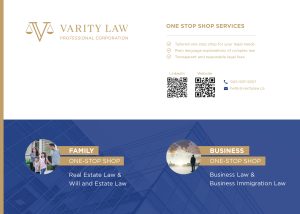We get taxed when we earn, we get taxed when we spend, and we get taxed when we die. As Benjamin Franklin once said, nothing in life is guaranteed, except for “death and taxes”.
Today, we will focus on the taxes that happen “when we die”. Especially, how advanced planning can significantly reduce the amount of taxes payable on death.

Estate Property Taxes
When and Why Property Taxes are Required
As all homeowners know, you must pay annual property taxes when you own real estate in Canada, with few exceptions. The property taxes are set by your city or regional municipality, and it is used to pay for road maintenance, sewer maintenance, snow removal, and many other government services.
Taxes are based on the percentage rates imposed by your city, combined with the property value assessed by the government. So, if you own a property worth $500,000 and the regional tax rate is 1.4%, your annual property tax would be $7,000.
Generally, taxes are paid in installments throughout the year. Unfortunately, these taxes are required even if you have died, so your family or estate trustee will be responsible to pay for this.
Consequences for Late or non-Payment
As noted above, if you are late on your property tax payments, you will normally be punished with a fee of 15% per year for all outstanding property taxes, until it is paid (applied at 1.25% per month late). This penalty will apply even if the homeowner has died, so in the case of a deceased’s estate, the family or Estate Trustee (Executor) will be responsible for making all property tax payments.
If the Estate Trustee fails to make these payments, they could be held personally liable for the penalties. Due to this, we always advise our clients to do 2 things to prepare their estate in the event of their death:
- Have a life insurance policy payable to your family or estate trustee
When we die, life insurance is normally paid quickly (within 5-10 business days). This can provide you with quick access to funds to cover estate expenses, including your property taxes.
Obviously, not everyone has life insurance, so this method doesn’t work for everyone.
Also, the beneficiary to life insurance becomes the FULL owner of the insurance payout. Technically, they could refuse to pay the taxes and keep the money for themselves. If this happens, your estate would still be responsible for the taxes and penalties.
- Have a small bank account with enough money to cover taxes that is joint with your estate trustee
Sharing an account with your estate trustee would provide your estate trustee with quick access to funds to cover estate expenses.
When we die, any joint bank accounts we own will become the sole property of the surviving joint owner.
However, the joint owner would have access to these funds while you are alive also, so there could be a risk that the joint owner steals the money before or after you die.
- Have your estate trustee listed as a designated beneficiary for your registered investments and advise them that they should use the money for the taxes.
Unlike joint bank accounts, designated beneficiaries do not receive ownership of your money until after you die, so they could pay debts with this money. However, like insurance or a joint account the designated beneficiary could refuse to pay the taxes and keep the money for themselves. If this happens, your estate would still be responsible for the taxes and any penalties.
Also, not every financial product allow you to set a designated beneficiary, such as saving and checking accounts.

Terminal Income Taxes
The terminal taxes are the income taxes due by your estate after you die and continues until your entire estate is settled and distributed to beneficiaries.
To begin this process, the Estate Trustee should notify the Canada Revenue Agency of the death, including the date of death. This will also ensure that no further tax credits, like GST/HST, are paid to the deceased, as those would need to be repaid. Notifying the CRA is often done by the Funeral Director when a funeral home is hired, but you should ask to be certain.
Additionally, if the deceased owned real estate property that gets sold, this must be reported also. Depending on when the property gets sold, this could result in another tax filing being necessary.
For example, Joe dies January 10, 2025 owning a rental property. His executor would need to file for his income taxes as follows:
- By April 30, 2026 – executor needs to file for the tax year 2025 (so income generated from January 1st to January 10th, 2025)
- By April 30, 2027 — executor needs to file for the tax year 2026, including any real estate properties sold within the year 2026; any of deceased’s bank balances that are consolidated into the estate account and given to beneficiaries in 2026
- If there are any other estate assets not sold until later years, then tax filing obligations continue until all estate assets are settled
As the Estate Trustee, you are responsible to ensure that the estate pays ALL outstanding taxes BEFORE distributing the assets.
If the Estate Trustee gives the beneficiary all the assets leaving no money left to pay the income taxes, the Estate Trustee will be held personally responsible for the unpaid taxes AND for any interest or other penalties applied against the estate.
Penalties can be quite large, so any delays can be extremely costly (5% late filing penalty, plus 1% for each additional month late (additional increased penalties can also be applied for extended delays).
If the beneficiaries need the money immediately, then the executor should hold back a reasonable amount to cover tax payments.
Due Date(s) of 1st Income Tax filing
The Terminal Income Tax due date depends on the date of death.
- If the death occurs between January 1 and October 31, the Terminal Return is due by April 30 of the following year.
- If the death occurs November 1 to December 31, the Terminal Return is due within 6 months of the date of death.
Please note, if the deceased was operating a business, special rules may apply based on tax filings requirements for the business. Additionally, if the estate trustee resided in other jurisdictions, like China or America, for example, they may be required to file taxes in that region also.
Caution
Please note, we are not accountants. While we are very knowledgeable in estate matters, we always work with, or suggest working with, a qualified accountant regarding any income tax matters.
Finally, to ensure all tax liabilities have been paid before giving the estate assets to the beneficiaries, it is wise to order a Clearance certificate from the Canada Revenue Agency.
This will confirm that all tax obligations have been satisfied. Also, by ordering this Clearance Certificate, the Estate Trustee can be confident that they will not be personally liable to pay outstanding taxes.
Payment
In some extremely rare situations, it is possible to get money from the frozen bank accounts to pay CRA taxes outstanding. If this is possible, it should be done to avoid delaying payments, which will likely result in penalties and interest. You should speak with the deceased’s bank for more information.
If the bank refuses to release estate assets to pay the tax debts, the best alternative would be for the deceased to leave money behind for tax payments in the same way suggested above for property taxes, but the same risks would apply.

Probate Taxes (aka Estate Administration Tax)
When we die, our estate must pay Estate Administration Taxes, which are equal to 1.5% of all assets owned by the deceased at the time of their death.
When are Estate Taxes Due
When someone applies for probate, they are required to address the Estate Taxes in their application. They can do this in one of two ways.
First, they could pay the tax BEFORE applying for probate if they have money to pay this.
Like Income Taxes, it is possible that a bank may pay this while the assets are frozen, but many banks will refuse to do this. If this happens, you will not have access to the estate funds to pay the Estate Taxes until after probate is approved.
Alternatively, if the deceased was prepared by leaving assets in joint accounts, through life insurance or through designated beneficiaries, the Estate Taxes could be paid before applying for probate using these funds.
Finally, the Estate Trustee could pay the Estate Taxes with their own money and then get reimbursed after the court approves probate and unfreezes the deceased’s assets.
Secondly, while it can be complex, the Estate Trustee, or their lawyer, could to a formal request to the court (called a “motion”) to ask the court to grant permission to pay the Estate Administration Taxes AFTER the court approves probate.
To do this, you must file complex documents with the court to convince the judge that this is the only option. We always work to get this tax deferral for all of our clients whenever possible.
How Much are the Estate Taxes
Most types of assets are subject to probate. The calculation method is quite simple:
(Total Estate Value – $50,000 CAD – any outstanding mortgage) times (1.5%)
Please note, ONLY outstanding mortgage may be deducted in calculating total estate value.
No other debts, such as vehicle loans and credit cards, may be deducted.
What Assets are NOT subject to this tax
Very few types of assets are not subject to probate or this tax, and those include:
- Jointly owned assets (e.g. real estate held as joint tenants with someone, joint bank accounts)
- Assets with designated beneficiaries (usually only registered assets allow for this, such as TFSA, RRSP, RRIF)
- Assets passing through a valid Trust
- Assets held in a limited liability corporation, with a valid corporate minute book and corporate Will

Family Property Transfer Taxes (Capital Gains)
When prepare estate plans, many people will seek to add their children or spouses to title on their properties to avoid estate taxes and the probate process.
However, in many cases, this can result in capital gains tax. In Canada, the government charges “capital gains tax” on the sale of certain types of property, like investment real estate. If you sell the property for more than you paid for it, you will be taxed for 50% of the profits as part of your income taxes.
When property is transferred between certain family members, there can also be capital gains issues. For example, if you receive property for $0 from your parent as a gift and then you sell it for a million dollars, you could be subject to taxes on 50% of the profit, which would be $500,000. To be sure you are exempt from capital gains taxes, you should speak to an accountant.
When a person dies owning investment property subject to probate, the law views that property as having been sold on the date of death for fair market value when filing taxes. From that value, capital gains taxes may be payable, unless the asset is transferred to a spouse or common-law partner, or a special exemption applies.
If the investment property is transferred to other beneficiaries, like children or siblings, the law assumes the property is “sold” for fair market value and potential capital gains would apply against the estate.
For this reason, if the plan is to sell property, it is best to sell it in the name of the estate to benefit from primary residence exemption the deceased can receive.
Lastly, any real estate that is sold by the beneficiaries after the property is given to them by the estate must report on their tax return and may be subject to capital gains for the difference between the sale price and the price reported on the deceased’s final return.
Exemptions
If the asset is the deceased’s principal residence (home) at the time of their death, this property could be exempt from capital gains taxes.
However, there are complex rules regarding what properties will qualify as a “Principal Residence”, so it is best to speak to an estate lawyer, or an accountant for more information.
The good news here is that regardless of whether the estate property is sold or transferred to beneficiaries, there would be no land transfer tax payable.
Caution
When filing for income taxes of any type (including principal residence exemption or capital gains), always speak to an experienced accountant.
Conclusion:
The three main types of taxes that happen after we pass include:
- Estate property taxes
- Probate (or estate administration) taxes
- Terminal income taxes
Advanced planning can significantly reduce the amount of taxes payable.
Lastly, when it comes to filing and paying your taxes correctly on time, it’s best to hire an experienced Estate law firm and accounting firm.
If you have any questions regarding this article, feel free to book a 1st free consultation with us here: https://calendly.com/sabrina-668/1stfreeconsult







